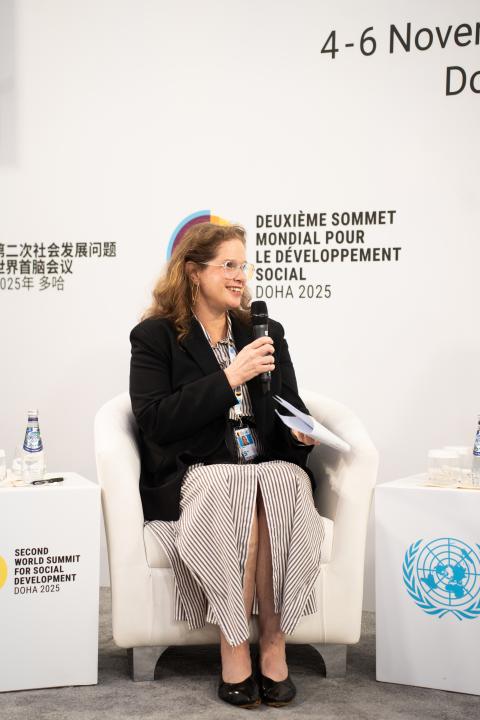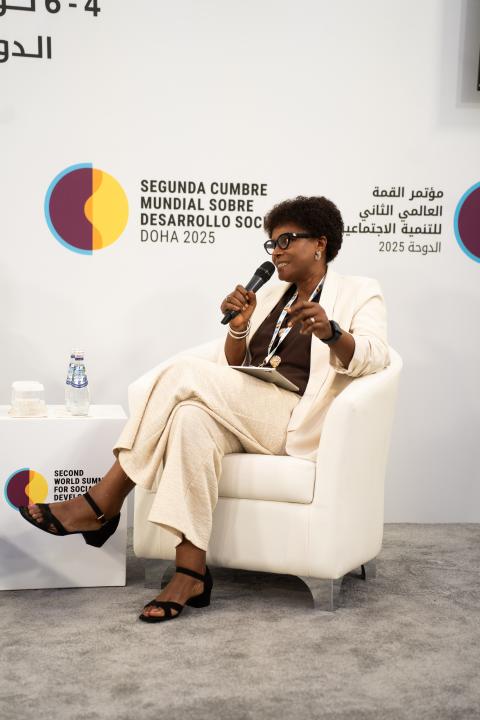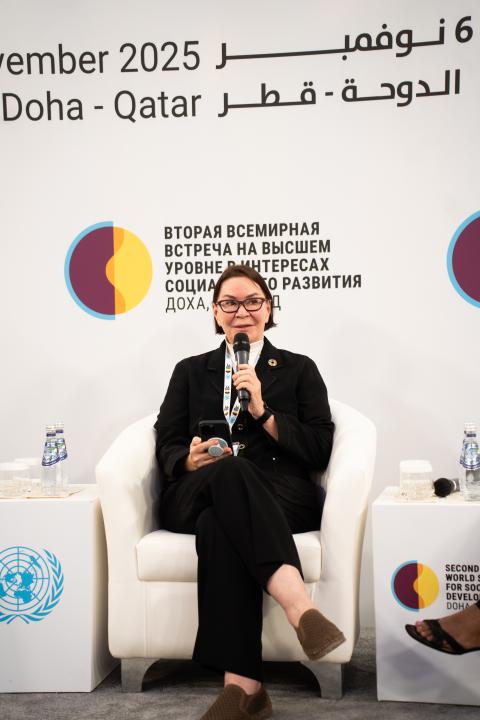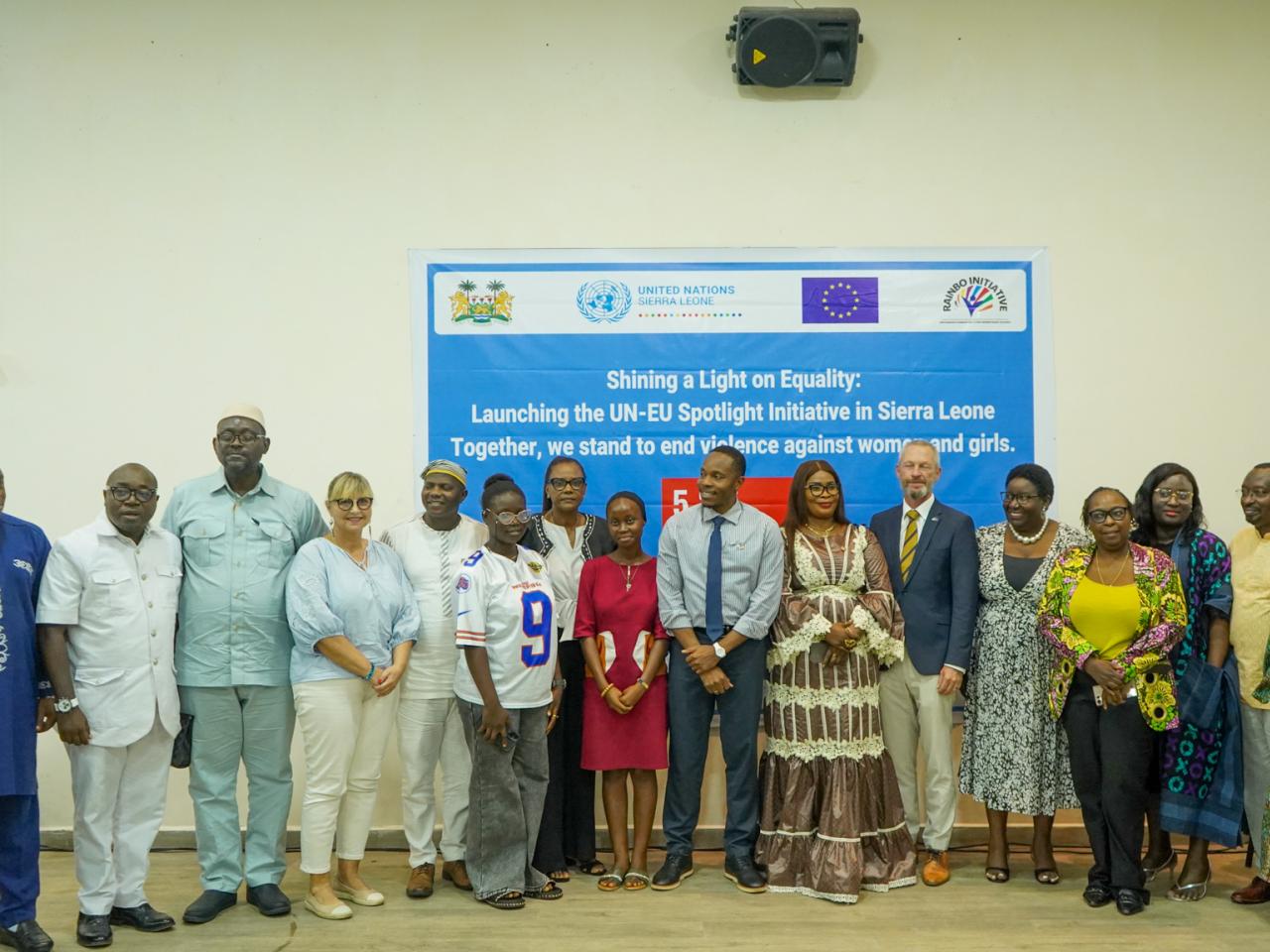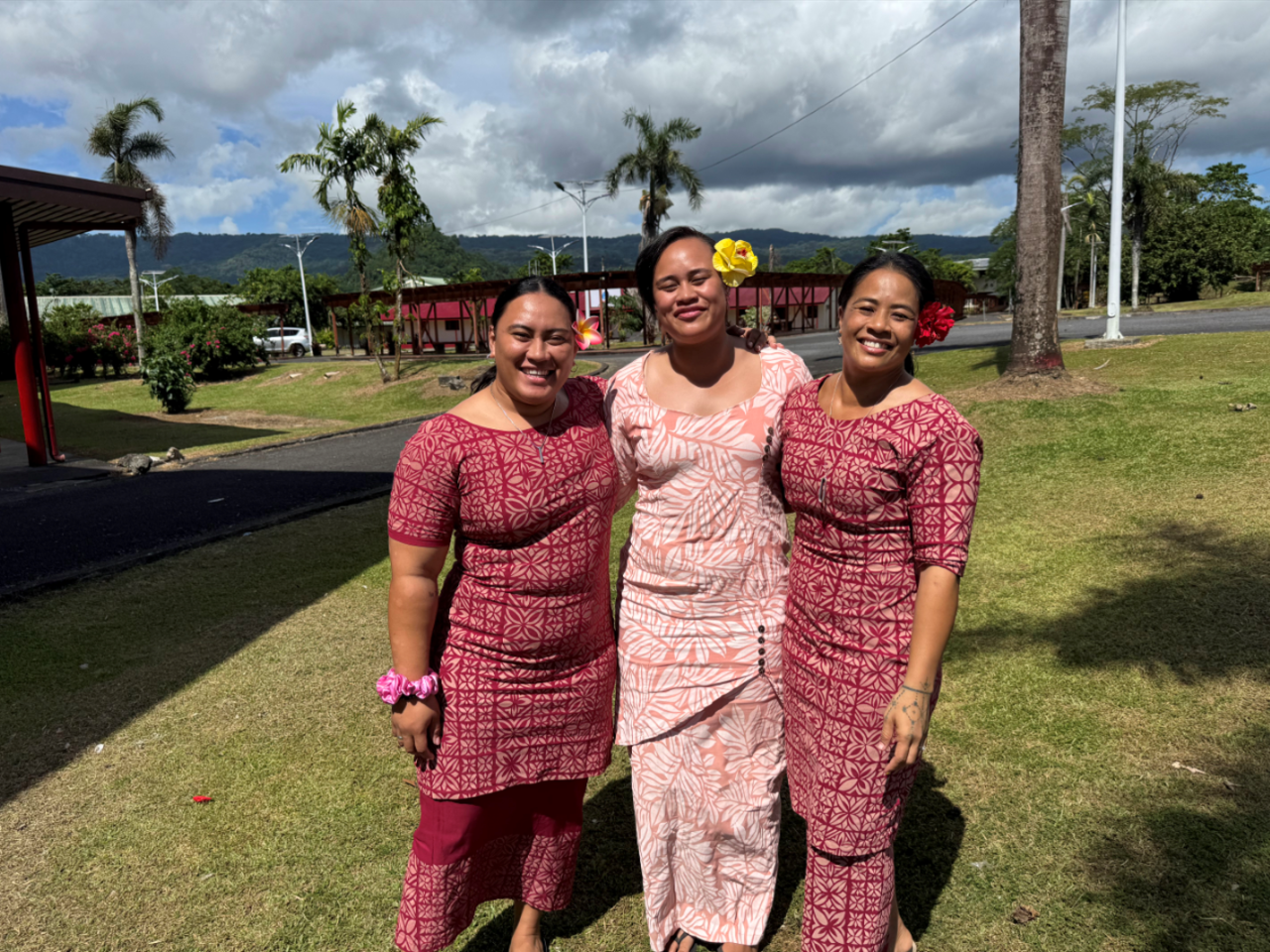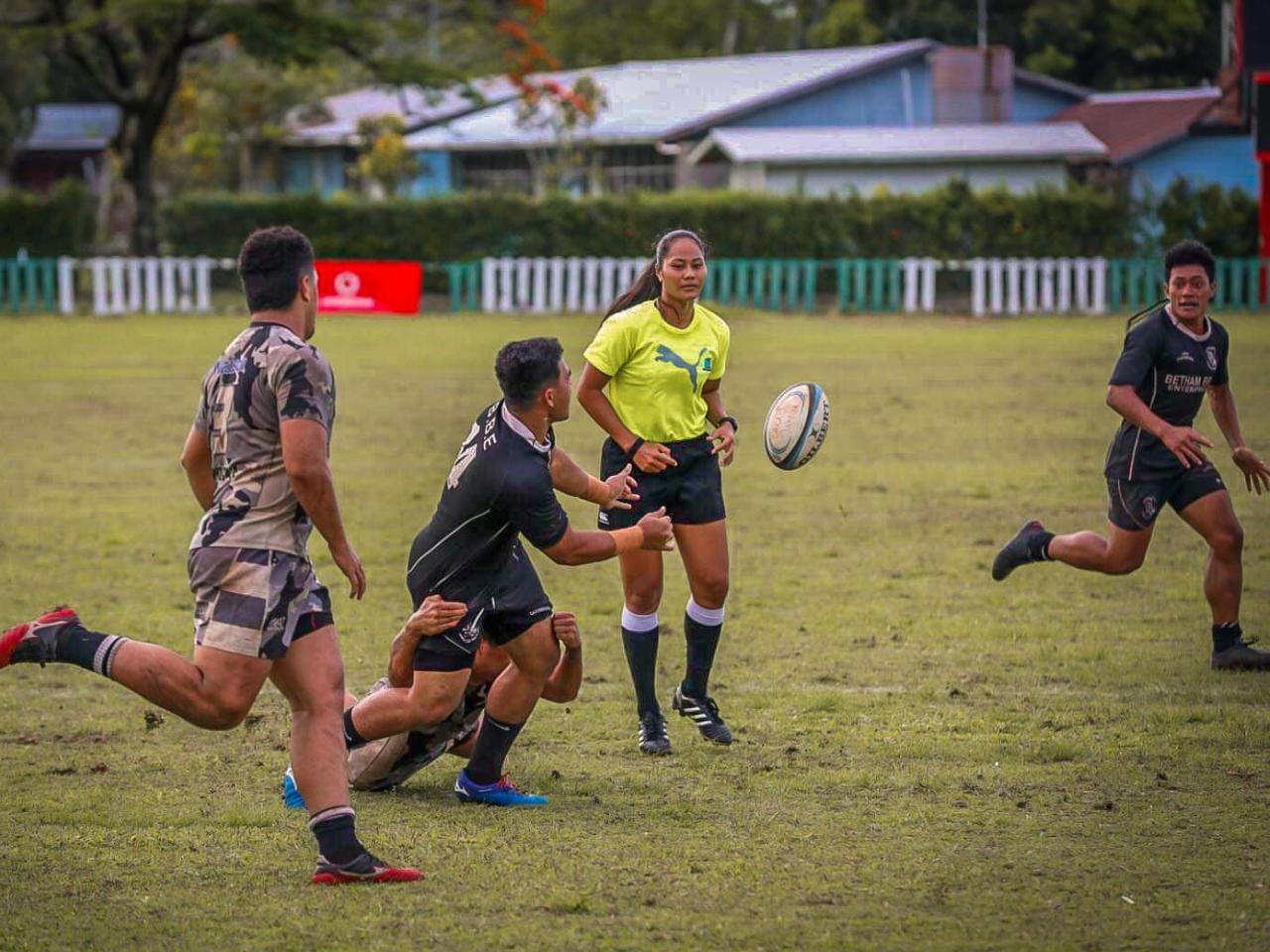From commitment to impact: lessons from leaders coordinating efforts to end violence against women and girls
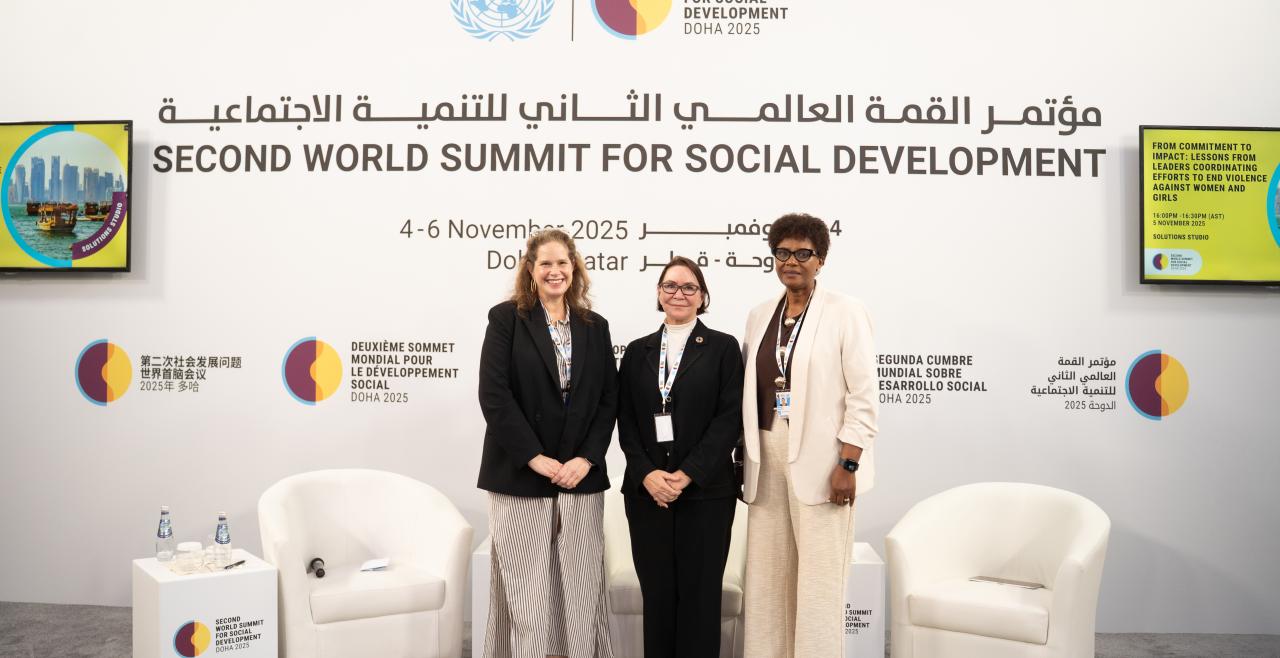
DOHA, Qatar - During the Second World Summit for Social Development, Spotlight Initiative hosted a Solutions Studio conversation to highlight strategies for addressing gender-based violence and to share best practices for driving collaboration on protecting the rights of women and girls.
Watch the full discussion above.
Spotlight Initiative Global Coordinator Erin Kenny introduced the session, which explored how to bring together government, multilateral, civil society and private sector partners to deepen impact.
“We really set out to do three things at once: to end violence against women and girls, to show how ending violence against women and girls can drive change across all of the Sustainable Development Goals and to reform the UN,” said Ms. Kenny.
"To do that, we very intentionally centred our programmes around the leadership of our UN Resident Coordinators… That leadership was really essential for the success of these efforts.”
UN Resident Coordinator in Sierra Leone, Seraphine Wakana shared how Spotlight Initiative has transformed efforts to eliminate violence in her country despite the programme launching just six months ago.
“There are a lot of initiatives happening, but Spotlight Initiative is unique because we are looking at integrating approaches and building on the existing platforms for better delivery,” said Ms. Wakana. She said that in addition to multisectoral, civil society and government collaboration, “We are seeing a shift in the mindset of local and community leaders [who are] changing how they see gender-based violence.”
“Lasting solutions and change are not going to come from the outside. It has to come from within,” she said. “[We must] count on the real participation, commitment and ownership of those who we are bringing in [as partners]… And really engage and empower local leaders, including at the traditional level. If they support the programme, we will see change in the communities.”
Ms. Kenny said this echoed the Initiative's own findings, which determined that 97 per cent of Spotlight Initiative countries had significant sustainability outcomes, even after programme closure.
“Investment in local leadership, the intentional orientation of our programmes at the local level, and the deep intentional investment in women's rights organizations – that is what is continuing to sustain the gains made even when programmes close,” said Ms. Kenny.
UN Resident Coordinator in Samoa, Karla Hershey, said that the effects of Spotlight Initiative were still evident in Samoa, despite the programme’s first phase ending in 2023.
She shared that the Initiative had brought together the government, the UN and civil society to embed gender equality as a part of the fabric of Samoan society.
Ms. Hershey cited the example of the University of Samoa’s Family Life Education curriculum: “It brings together students and teachers, male and female, to have conversations on key violence prevention topics… human rights, consent, equality.”
Later, she explained how the programme had used sport as part of a whole-of-society approach for preventing violence, including by embedding conversations about equality and consent into practice sessions, working with local leagues to promote anti-violence messaging, and collaborating with role models championing positive values. This was supported at a systemic level by linking sports clubs to helplines, health services and justice services to create safe and inclusive sports environments.
“Changing norms in sports can spread to families and communities and promote healthier relationships overall,” said Ms. Hershey.
In her closing reflection, Ms. Wakana emphasized that work to eliminate violence had created a ripple effect across other Sustainable Development Goals, including in the areas of education, health and development. “Young girls can now go to school freely without fear… The efforts that we are making are really building resilient communities where women have a voice,” she said.
Ms. Hershey highlighted the need to make prevention strategies a top priority: “Prevention works, there is no doubt. And it’s particularly effective when we link it to education, livelihoods, sports and engaging community leaders."
"We need to fund women's organizations and we need to engage men and boys and make equality a shared national value in all of the countries we serve.”
The session was a timely reminder that women and girls must be at the heart of any social progress and that eliminating gender-based violence is a prerequisite to building societies that are resilient, inclusive and sustainable.

